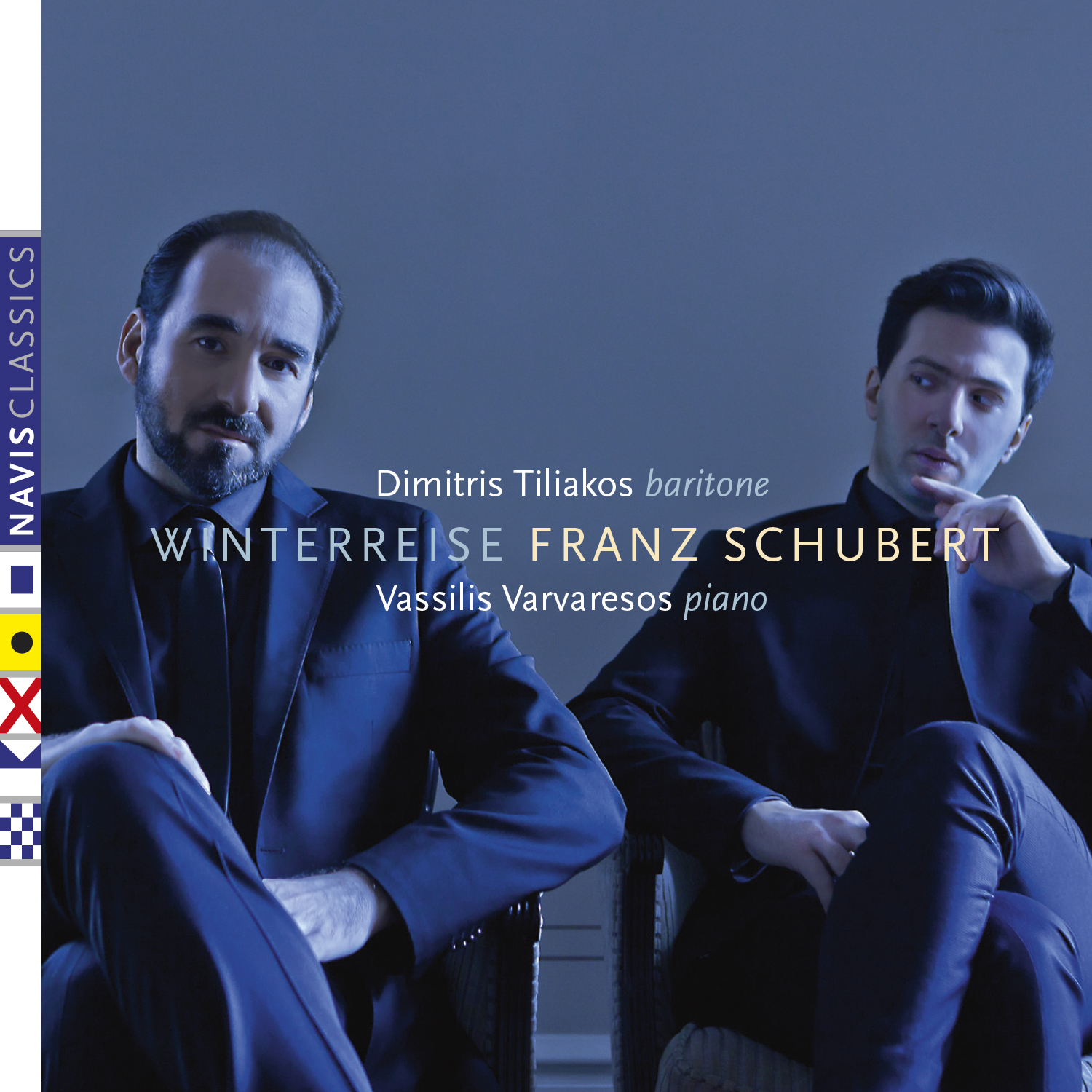Winterreise D911
Dimitris Tiliakos and Vassilis Varvaresos
The Greek baritone and international opera soloist Dimitris Tiliakos recorded a wonderful version of the Winterreise cycle, together with pianist Vassilis Varvaresos. Dimitris sings in nearly all major opera houses in Europe but has a deep passion for Schuberts lieder. Vassilis is not only a brilliant soloist but also a composer and chamber music lover. They met at a festival in Greece and found out that they shared a wish to perform the Winterreise cycle so they did. After successful concerts in Athens and Paris the idea came to record the cycle and Navis Classics was directly interested to release it on the label.
In the booklet, Dimitris makes an interesting link to the ancient Greek history. Dimitris and Vassilis are both Greek and however this is not a Greek version of the Winterreise so to say, there is an interesting connection. Dimitris points out that the principle of Eros-Thanatos (Love and Death) is one of the main themes of ancient Greek art. We often talk about Life and Death but isn’t Love and Death exactly what the Winterreise is about?
From the booklet interview with Dominy Clements:
Dimitris: “I think that Winterreise touches upon a very important and terrifying subject: helplessness when faced with the abyss of our own existence. Talking of Winterreise as a march towards death or life is, in my view, too narrow a reading and too romanticised a point of view. I see this cycle in a more gripping reality – I see in it the voice of people who su er from depression, schizophrenia, or simply human beings faced with extreme pain, loss and su ering. This is not a journey towards life, death, or redemption. There is no redemption in Winterreise – there is no action. Nothing really happens
in the cycle: the hero does not nd love or accept his fate. Winterreise is an observation of the human soul. It is an attempt to understand what happens in our souls when faced with the Leierman of our own existence – what can happen when the shock of nothingness knocks on our door; when all of our work, family, friends and activities: in other words, all our attempts to forget, turn out to mean nothing. My future wish, to myself and to others would be to reexamine these questions and look at them in the eye fearlessly. We live in a society that pushes anxiety, stress, disorder, fear of death under the carpet – we live in a forgetful society where happiness stems from a false sense of immortality. Winterreise is so gripping even today precisely because it is not romanticising the fact that there are moments in one’s life when nothing makes sense, where everything is a cold winter, where one arrives alone in an abandoned village and the only thing he or she hears is the sound of the Leierman. And this experience is not necessarily an experience of death. It can be the experience of loss of a loved one, or the experience of not being able to understand all the malice in the world. We must address these issues with fearlessness, and I believe that Schubert’s monomania and fascination with the abyss of the human soul shows a way: that the only true change and revolution in everyone’s lives comes through inward intro spection. Action is what happens in our souls.
So, in short this is my wish: that we don’t forget that there is pain and su ering in this world – and we are not immune to it. And that we act upon it by changing ourselves in the only way possible: from the inside.”


